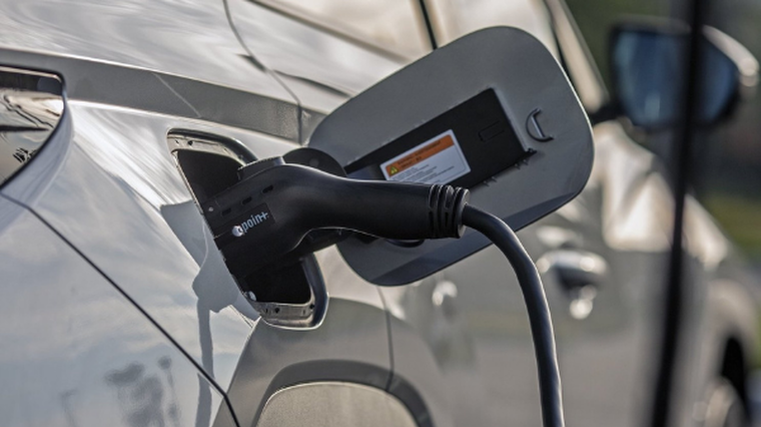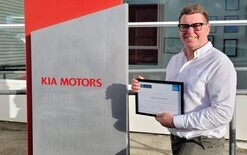Dealers told get set for standard

Government officials have advised car dealers to get ready to open accounts to record the carbon dioxide (CO2) emissions of light vehicles they bring into New Zealand.
The accounts are needed under the clean car standard (CCS), which starts on January 1. They are required when new and used vehicles are imported for sale or personal use.
The CO2 accounts must be set up from December 1 and used to record the emissions values as part of the standard’s requirements.
“You will need to enter the account number against every vehicle,” states an update issued by Waka Kotahi. “Without this information, vehicles will not be able to complete entry to New Zealand and be registered.
“From January 1 for pay as you go, the CCS CO2 emissions value will determine either a charge to be paid or credit that is earned for the vehicle.
“We will let you know when registration opens. All accounts are initially registered as pay as you go. Importers can apply to be on fleet average through the online application process.”
The transport agency, in its advice of October 21, says the CCS system will be available in early November and importers will then be able to register for a CO2 account, view their account details and add extra users to manage the account.
From December 1, imported light vehicles will be visible in the system with CO2 accounts showing their emissions values.
Vehicles will be automatically accepted in the system so importers can test the process for viewing vehicles as they are certified. This will also allow importers to monitor vehicles not certified before January 1. Excluded vehicles will show a zero CO2 emissions value.
From January 1, when pay-as-you-go importers’ vehicles are accepted, charges for those with CO2 emissions values above the weight-adjusted target will be calculated. Vehicles below this target will have their credit added to the importer’s CO2 balance. Importers will have the option to use any available credits to offset charges.
For importers on fleet average, once a vehicle is accepted you can track overall performance against your target during the year.
There will be processes in place to reject vehicles, correct values and locate vehicles in the system that are not showing in an account. Waka Kotahi says its CCS team supporting the system will manage issues or make corrections as needed.
CO2 credits have no monetary value but can be used to offset charges to be paid for vehicles or transferred to other importers. The CO2 targets are set for passenger and commercial vehicles on an annual basis.
If an import is above the target, it will incur a charge calculated based on a fee per gram of CO2 in excess multiplied by the number of vehicles in the fleet. Rates for new and used vehicles differ.
Payment schemes
There will be two payment schemes – pay as you go and fleet average. When importers register for a CO2 account, they will automatically be assigned to pay as you go. As the name implies, each imported vehicle is assessed. If a charge is due, it needs to be paid or an existing credit used to offset it.
Once registered for a CO2 account, importers can apply to switch to fleet average. This is assessed annually with payment of any charges once the assessment is complete.
This means that, across the year, you’ll need to ensure the average emissions of the vehicles imported meet the CO2 target for that year to avoid charges. If at the end of the year the average emissions of vehicles imported are higher than the target, you’ll be invoiced for the charges.
Pay as you go
The process for joining is automatic. Importers operating on pay as you go will comply with targets on a per-vehicle basis.
A CO2 credit is applied if the vehicle’s emissions are less than the individual vehicle target for that vehicle. Credits can be banked or transferred. Charges are paid per vehicle based on the annual rate.
If a vehicle’s CO2 emissions are greater than the target, a charge will be due at time of accepting each vehicle in the CCS system unless credits are used to offset. Rates for 2023 are $36 per gram of CO2 for new vehicles and $18/gCO2 for used.
Fleet average
The process for joining is by application with CO2 credits paid annually. A credit is applied if the actual average vehicle emissions across the importer’s total fleet, during an obligation year, are less than the target. Credits can be saved or transferred.
Charges are payable annually based on the annual rate. If the total vehicle CO2 emissions are greater than the total targets across the obligation year, a charge will be due unless credits are used to offset.
The rates for 2023 are $45/gCO2 for new vehicles $22.50 for used.
Applying for accounts
A CO2 account will allow importers to view and manage their imported vehicles. An importer can have one account for new vehicles and one for used.
To register for a pay-as-you-go account, you will need a RealMe log-in, which can be created during the registration process when Waka Kotahi will ask for information, such as if you are importing new or used vehicles, and contact details.
If you are setting up an account as a business, your New Zealand Business Number (NZBN) will be required.
No approval is needed for pay-as-you-ago accounts and Waka Kotahi expect this process will take you about five minutes.
Businesses with a CO2 account can apply for a fleet average account. They must be a New Zealand business with a NZBN that’s been trading for five years or more.
Information required includes the registered motor-vehicle trader number, financial details including accounts, trading history and a current credit rating if it has one.
Details of how you plan to comply with the CO2 targets will be requested, along with a direct-debit authority form filled out with proof of the bank account, such as bank statements, to be used for payments.
A declaration about criminal offences or bankruptcy from the applicant or related person and persons’ is also required.
The transport agency says it will take about 30 minutes to complete a fleet average account application if you can quickly access all the information you need to supply. Templates will be available to download from Waka Kotahi’s website to help you provide this information.
While the agency is reviewing your application, you can still manage your vehicles in the CCS system using your pay-as-you-go account. It is the fleet-average application criteria that is subject to regulations.
If you have any questions in the meantime, you can email CCSImporter@nzta.govt.nz or visit nzta.govt.nz/clean-car-programme
Operating in tandem
The clean car standard and discount operate together. The discount, which was implemented in April this year, is intended to encourage demand for low-emissions light vehicles by providing rebates for zero and low-emissions models. It requires a fee to be paid for high emitters when first registered.
Waka Kotahi is now implementing the CCS, which is focused on influencing supply into New Zealand through vehicle importers.
The transport agency notes information it supplied on October 21 is based on what is provided in the legislation and is subject to regulations. Legislation for the clean car standard was passed in February 2022 and its implementation settings, which were issued on November 1, can be found online at www.legislation.govt.nz/regulation/public/2022/0285/latest/whole.html.





